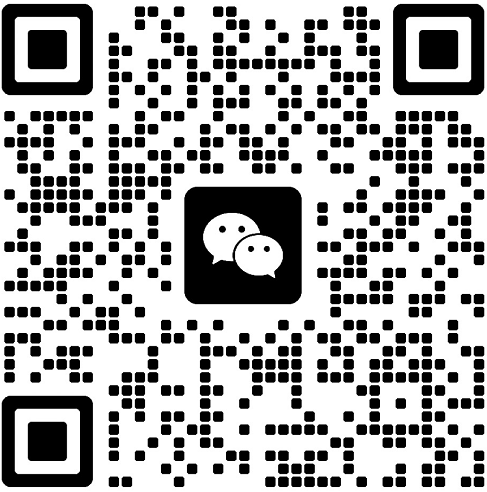How Does L-Theanine Alleviate Stress and Anxiety?
In the fast-paced modern life, "stress" has long become an "invisible companion" for most people—traffic jams during commutes, work deadlines, trivial problems in daily life, all of which can make nerves tense and even trigger unexplained anxiety. Yet, you may not know that there is an amino acid extracted from natural tea leaves that is providing a "buffer zone" for people's emotional health in a gentle yet effective way. That is L-theanine.
As a non-protein amino acid, L-theanine is mainly found in tea leaves such as green tea and black tea, and its content is particularly high in matcha. Unlike stimulating ingredients like caffeine, it does not cause side effects such as rapid heartbeat or nervous excitement. Instead, through a variety of scientific mechanisms, it helps the human body regulate stress responses and soothe anxious emotions at the source, truly deserving the title of "a natural emotional soother".
Targeting the Root of Stress: Regulating the Balance of Brain Neurotransmitters
Neurotransmitters in the brain are the "key switches" that control emotions and stress perception. When a person is in a state of long-term stress, "glutamate"—which is responsible for transmitting anxiety signals in the brain—becomes overactive, while "gamma-aminobutyric acid (GABA)"—which induces a sense of relaxation—becomes relatively insufficient. This imbalance is the core cause of anxiety and tension.
L-theanine can act precisely on this mechanism: it promotes the synthesis and release of GABA in the brain, while inhibiting the overexcitement of glutamate. It is like installing an "emotional regulator" in the brain, restoring the stability of neural activity. In addition, it can also increase the levels of "serotonin" and "dopamine" in the brain—the former is known as the "happy neurotransmitter" and can alleviate low mood, while the latter is related to a sense of pleasure and concentration, helping people maintain clear thinking while relieving stress and avoiding "mental confusion" caused by anxiety.
Reducing Physiological Indicators of Stress: Relieving the Body’s "Stress Response"
Stress not only affects emotions but also triggers a chain of "stress responses" in the body, such as elevated cortisol (the stress hormone) levels, rapid heartbeat, and blood pressure fluctuations. If this persists for a long time, it can easily lead to fatigue, insomnia, and even worsen problems like weakened immunity and endocrine disorders.
Scientific studies have shown that these "physiological stress signals" of the human body are significantly reduced after taking L-theanine. For example, an experiment on office workers found that participants who took 200mg of L-theanine daily had a cortisol level in their saliva that was more than 30% lower than that of the control group when facing high-intensity work tasks, and their heart rate and blood pressure could also remain more stable. This means that L-theanine can not only "soothe emotions" but also reduce the damage of stress to the body at the physiological level, keeping the body away from the wear and tear caused by "long-term stress".
No Impact on Concentration: Achieving Both "Relaxation" and "Alertness"
Many people worry that "relieving stress" will be accompanied by "mental listlessness"—for instance, after taking certain sedative ingredients, it is easy to feel sleepy and lose concentration, making it impossible to cope with work or study. However, the unique advantage of L-theanine lies in its ability to balance "relaxation" and "alertness".
It does not inhibit brain function like sleeping pills or sedatives. Instead, by regulating the "alpha brain waves" of the brain (this type of brain wave usually appears when a person is in a relaxed but awake state, such as during meditation or deep breathing), it helps people enter a state of "calmness and focus". Whether facing a backlog of work, a stressful exam, or creative tasks that require concentration, after taking L-theanine, you can not only get rid of the "restlessness" caused by anxiety but also maintain clear thinking and efficient action, truly achieving "going into battle with a light load".
Natural and Safe: "Emotional Care" Extracted from Tea Leaves
As an ingredient extracted from natural tea leaves, the safety of L-theanine has been verified over the long term. It does not need to be metabolized by the liver, will not cause drug dependence, and has no obvious side effects (a small number of people may experience mild gastrointestinal discomfort, but the probability is extremely low). It can be used with confidence whether for daily health care or short-term response to high-pressure scenarios (such as exams, speeches, and project sprints).
Nowadays, L-theanine has been widely used in functional foods, dietary supplements, and even natural beverages—from portable capsules and tablets to soothing teas and probiotic products added with L-theanine, meeting the usage needs of different groups of people. For modern people pursuing "natural health", it is undoubtedly an "ideal choice" to combat stress and anxiety: without relying on drugs, you can regain inner peace through the power of nature.
If you are often troubled by stress or want to "unwind" your emotions in the fast-paced life, you might as well try L-theanine—let this natural ingredient from tea leaves help you soothe anxiety and face every challenge in life with a more calm attitude.
To learn more about product application solutions for L-theanine or obtain exclusive emotional health advice, please feel free to contact us admin@harworldbio.com at any time to explore the health benefits brought by natural ingredients together!
References
Tianjin Key Laboratory of Food and Biotechnology, University of Commerce, Tianjin 300134, China
Department of Wine, Food and Molecular Biosciences, Lincoln University, Christchurch 7647, New Zealand
YOU MAY LIKE

_1746003921546.webp)






